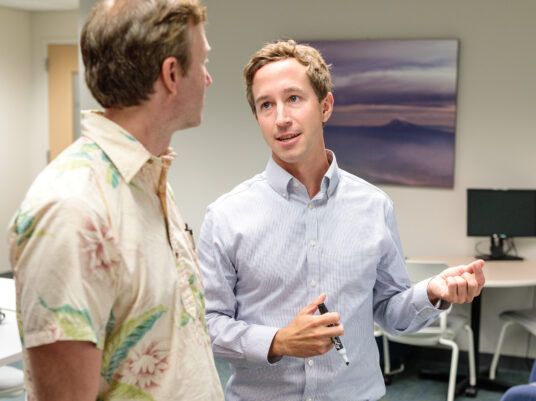Q&A with Dr. Douglas Barthold: Examining How Health Policies Affect Care for People with Dementia
June 17, 2022Dr. Douglas Barthold, winner of a 2021 Faculty Starter Grant in Health Outcomes Research, conducts research examining the relationships between health policies, health care utilization, and health outcomes and inequalities.

The winner of a 2021 Starter Grant in Health Outcomes Research from the PhRMA Foundation, Dr. Douglas Barthold conducts research examining the relationships between health policies, health care utilization, and health outcomes and inequalities. He is a research assistant professor and faculty fellow at the Comparative Health Outcomes, Policy, and Economics (CHOICE) Institute at the University of Washington.
Q: Briefly describe your research related to Alzheimer’s disease.
Dr. Barthold: My research examines the intersection between health policies, chronic disease management, and cognition, from mid-life to end-of-life. This includes how health policies like insurance design affect risk factors for dementia and also the value of health care for people with dementia.
Q: What do you hope to achieve with your research? Why is it important?
Dr. Barthold: The burden of dementia on both patients and caregivers is high and growing, and it disparately affects racial and ethnic minorities. I hope to reduce this burden by informing policies that modify risk factors for dementia and improve the quality of care for people with dementia and their caregivers.
Q: What interested you in doing this research?
Dr. Barthold: There are 6.5 million people aged 65 and older with Alzheimer’s disease in the U.S. This age range coincides with Medicare eligibility, meaning that there is potential for Medicare to influence and improve care for these individuals.
Q: What are the challenges and opportunities you see for Alzheimer’s disease-related research?
Dr. Barthold: The biggest opportunity is for insurance reform for middle-aged Americans to promote high-value practices that reduce the risk of dementia. The biggest challenge is the political feasibility of those reforms.
Q: What keeps you motivated and why are you hopeful for the future of Alzheimer’s disease research?
Dr. Barthold: The work is interesting and important. In addition to better recognition of practices to modify dementia risk, I am also hopeful that disease-modifying therapies will be available in the near future.
